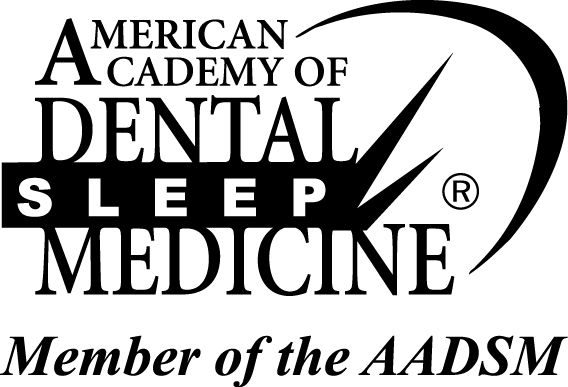Sleep Medicine

Sleep medicine is a specialized field that focuses on the diagnosis, treatment, and management of sleep disorders. These disorders can range from common issues like insomnia and sleep apnea to more complex conditions such as narcolepsy or restless leg syndrome.
Sleep specialists employ various techniques and tools to evaluate patients' sleeping patterns, including polysomnography, which records brain activity, eye movements, heart rate, and breathing during sleep. With this information at hand, they are able to provide accurate diagnoses and develop personalized treatment plans tailored to each patient's needs.
Common Sleep Disorders
Sleep disorders are relatively common and can have a significant impact on our overall well-being. The most prevalent sleep disorders that people experience include:
- Insomnia is a disorder characterized by difficulty falling asleep or staying asleep throughout the night. It can be caused by various factors, including stress, anxiety, or certain medications. Those with insomnia often feel fatigued during the day and may struggle to concentrate.
- Another common sleep disorder is sleep apnea, which causes breathing interruptions during sleep. This condition can lead to excessive daytime drowsiness and loud snoring. It's important to note that untreated sleep apnea can increase the risk of other health issues like heart disease and high blood pressure.
- Restless leg syndrome (RLS) is another disruptive sleep disorder characterized by uncomfortable sensations in the legs leading to an irresistible urge to move them. RLS typically worsens at night when trying to relax or fall asleep, causing discomfort and restlessness.
- Narcolepsy is a neurological disorder that affects the brain's ability to regulate wakefulness and sleep cycles properly. People with narcolepsy often experience sudden bouts of uncontrollable daytime drowsiness and may even involuntarily fall asleep during activities like working or driving.
These are just a few examples of common sleep disorders faced by individuals worldwide. If you suspect you have any symptoms related to these conditions or any other troubling sleeping patterns, it's crucial to seek professional medical advice for accurate diagnosis and appropriate treatment options tailored specifically to your needs.
Diagnosis of Sleep Disorders
Sleep disorders can have a significant impact on our overall health and well-being. If you suspect that you may be suffering from a sleep disorder, it is important to seek proper diagnosis and treatment.
Diagnosing sleep disorders involves a comprehensive evaluation of your symptoms and medical history. Your healthcare provider will likely start by conducting a thorough physical examination, including assessing your sleep patterns and habits.
In some cases, additional tests such as polysomnography may be recommended. This test measures various physiological parameters during sleep, including brain waves, breathing patterns, heart rate, and oxygen levels. It helps in identifying the specific type of sleep disorder you may be experiencing.
Additionally, keeping a detailed sleep diary can provide valuable information about your sleeping patterns over time. This includes recording information such as bedtime routines, duration of sleeping hours per night, any disruptions or awakenings during the night, and daytime fatigue levels.
Remember that accurately diagnosing a sleep disorder requires expertise from qualified healthcare professionals who specialize in Sleep Medicine. They will interpret your symptoms along with the results of these diagnostic tests to determine an appropriate course of treatment for your specific condition.
Treatments for Sleep Disorders
When it comes to treating sleep disorders, there is no one-size-fits-all solution. The appropriate treatment will depend on the specific type of sleep disorder and its underlying causes. It's important to consult with a medical professional to determine the best course of action.
For some individuals, lifestyle changes may be sufficient to improve their sleep quality. This could include establishing a consistent sleep schedule, creating a relaxing bedtime routine, and avoiding caffeine or stimulating activities before bed.
In other cases, medication may be prescribed to help regulate sleep patterns. These medications can range from over-the-counter remedies like melatonin supplements to prescription drugs that target specific issues such as insomnia or narcolepsy.
Another common treatment option is cognitive behavioral therapy (CBT). This type of therapy aims to identify and address any negative thoughts or behaviors that may be contributing to poor sleep. It can also teach relaxation techniques and promote healthy sleeping habits.
Remember, what works for one person may not work for another when it comes to treating sleep disorders. Each case is unique, so finding the right treatment plan often involves trial and error until an effective solution is found.
Conclusion
Sleep medicine is a specialized field that focuses on the diagnosis and treatment of sleep disorders. These disorders can greatly impact an individual's quality of life, leading to fatigue, poor concentration, and increased risk for other health conditions.
In this article, we have explored some common sleep disorders such as insomnia, sleep apnea, narcolepsy, and restless leg syndrome. We have also discussed the importance of seeking professional help for proper diagnosis and treatment.
Diagnosing sleep disorders involves a comprehensive evaluation that may include a detailed medical history, physical examination, and overnight sleep study. This allows healthcare professionals to accurately diagnose the underlying cause of the disorder.
Once diagnosed, various treatments are available depending on the specific condition. It is important to remember that each person's experience with their specific sleep disorder is unique. Seeking guidance from a qualified healthcare professional specializing in Sleep Medicine will ensure personalized care tailored to your needs.
By addressing these issues promptly through consultation with our specialist, patients are able to reclaim their lives, leaving behind fatigue-filled days while embracing restful nights filled with rejuvenating slumber!
If you or someone you know is struggling with disruptive sleeping patterns or experiencing any signs of potential sleep disorders mentioned above, reach out now before it takes a toll on your overall well-being! To learn more, visit Daydream Family Dentistry at 519 S Missouri Ave., Weslaco, TX 78596, or call (956) 968-6561.